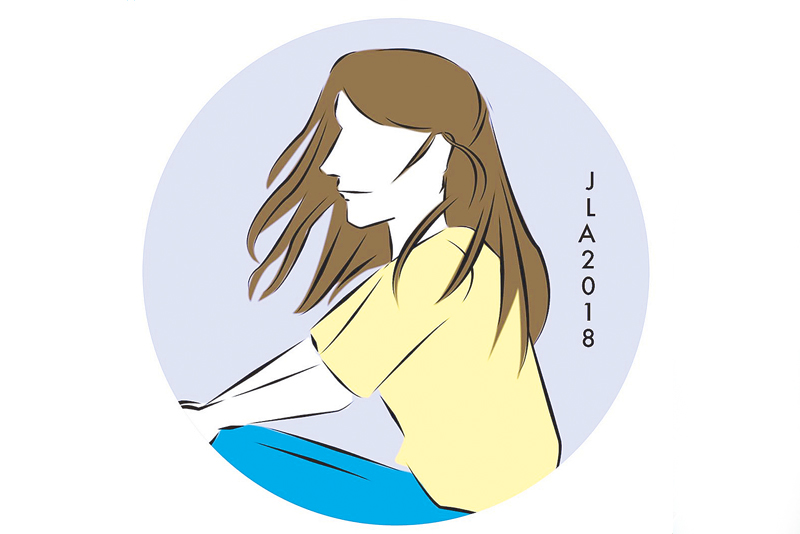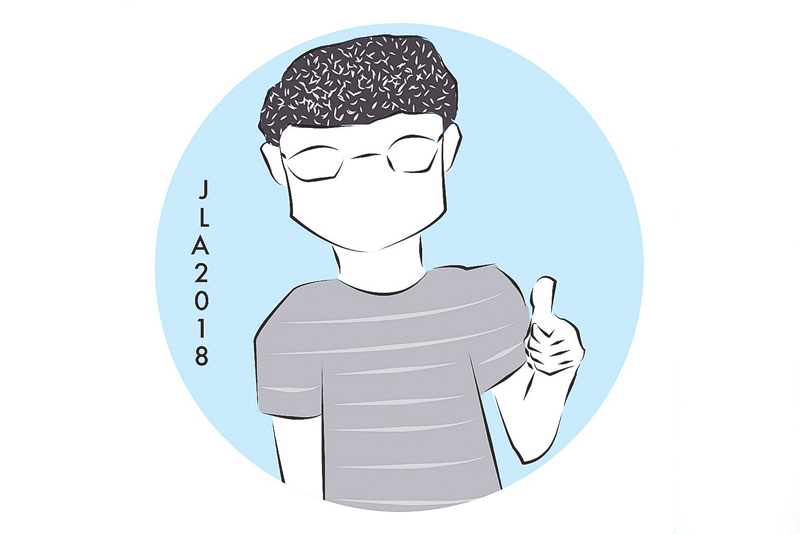Life is a lesson

Life: Businesswoman Merci Poblador Padolina of Cabanatuan, Nueva Ecija is the seventh of eight children of a single mother. Back then, the nine of them “lived in the smallest house on the street.”
“We only had a poso for our water supply so I had to fetch drinking water from a neighbor’s house,” recalls Merci of her childhood. “Nakikinood din kami ng TV sa kapitbahay (We could only watch TV in our neighbors’ homes).”
The cash-strapped siblings thus studied hard, enabling most of them to earn scholarships. After one graduated, he or she would send the younger ones to school, till all the siblings earned a degree. Eventually, one sibling became an accountant, the other a pilot, the other a school superintendent. Two became nurses, and still another a civil engineer like Merci herself. Growing up, Merci augmented her allowance by selling greeting cards because she gave her primary baon to her youngest sister, whom she was very protective of.
After she passed the board exams, Merci was hired as an estimator in the City Engineer’s Office. On the side, she would tutor high school students in Math, which was her expertise. One of her students was the child of a real estate developer who asked Merci to oversee the construction of one of his subdivisions. From scratch.
Merci took to the job like fish to water. The secret to her success was that she worked hard to make herself indispensable to her boss. “Nakuha sa sipag (I nailed it with hard work),” she discloses. “Because of my hard work, I was able to run the projects efficiently. They didn’t know what to do without me.” During the ‘80s, she recalls, she was already earning P20,000+++ a month, much of which she saved. Eventually, she managed several projects till she decided to set up her own construction firm, which today handles multimillion accounts.
Her children are following her footsteps: one is an engineer, another is about to graduate from a course in civil engineering and the other is taking up architecture. Because of their mother’s hard work, they don’t need to augment their allowance by selling greeting cards on the side.
When one of them brought his classmates to their home in Nueva Ecija, one guest remarked, “I thought you were bringing us to your home, not to a resort.”
And with a grateful smile, Merci’s son told his classmate, “This is our home.”
Lesson: Education is a game changer, and hard work is an enabler.

***
Life: Unlike Merci, former BPI president Gigi Montinola was born privileged. During a recent trip to Boracay, I saw how being “privileged” doesn’t automatically mean being “entitled” in Gigi’s unique case.
My family and I bumped into Gigi in Boracay. After dinner, we decided to explore the island and have a nightcap at a hilltop resort at the opposite end of the island. At the time we set out for the nightcap we saw a tricycle, a rundown one that could take five passengers, and Gigi hailed it. We traveled over the dusty, sometimes bumpy main road parallel to the beach and were enjoying the wind on our faces when the driver suddenly stopped because one of his tires was malambot (soft). The driver then asked one of the male passengers to ride behind him on the motorcycle to ease the pressure on the tire (no, we weren’t that heavy!). Then after another five-minute drive, the tricycle stopped again, at a vulcanizing shop this time.
“Okay lang yan,” Gigi told the driver after the second averia (breakdown). Then he told us, “You could see that he is working hard. Kawawa naman.” Not once did I hear Gigi say, “Nakakainis naman (It’s annoying).” Perhaps, he knew the trike driver was going to lose his means of livelihood with the closure of Boracay on April 26. Or perhaps, as his Ateneo education ingrained in him, Gigi strived to be a “man for others.”
Finally, we were on our way to the hilltop resort and midway up our climb to the resort’s lobby, Manong Driver stopped again and asked us to get off his trike and just meet him at the top of the road because the rinky-dink couldn’t muster enough power to forge on. So, you could imagine the four of us walking up the hill and working up a sweat in our island’s best attire. Finally, we caught up with Manong Driver after having climbed what seemed like a mountain for our rendezvous with the rinky-dink.
“Sorry po, nasa reserve na kasi ang gasolina kaya wala ng buwelo (Sorry, our gasoline is already on reserve supply),” he scratched his head. My foot! But instead of berating the driver for taking on passengers despite his trike’s lack of roadworthiness, Gigi said, “Okay lang yan.”
Again, he turned to us and said, “He is working hard after all.”
Gigi’s demeanor that night humbled me, because I myself would have lectured Manong Driver about making sure his tricycle was ready to take on passengers for the steep price of P250. I know I had a valid point, but I guess, seeing that there was nothing the driver could do but scratch his head at the moment, Gigi simply decided to treat the whole escapade as “an adventure.”
“Okay lang yan,” he repeated as he paid the driver the full fare, and off we went to our nightcap without further surprises.
Lesson: When the going gets rough, put yourself in the driver’s place and say to yourself, “Okay lang yan.” Like a true man for others.

***
Life: The first two lessons above trained the light on what is good in people. But this next story shows what isn’t.
One of my officemates rode an air-conditioned bus at around 9 p.m. on a Saturday en route to a mall on EDSA. She took a seat, which could accommodate three, on a row midway inside the bus. While she was texting a message to the person she was supposed to meet, a man in his thirties made his way to the window seat. No sooner had he settled down when another passenger with a big backpack tried to get into the row. My officemate stood up to let him in, but instead he pushed her to the middle seat. Sandwiched, she was helpless when the man on the window seat poked a knife to her side and the man on the aisle seat cocked a gun to her other side. They took her phone, then her wallet. My officemate begged one of the holdup men to spare her IDs, so he threw her wallet to the floor. One man held her neck down. He told her in a menacing tone, “Huwag kang sisigaw kung hindi babarilin ka namin (Don’t shout or we will shoot you).” My officemate was shaking like a leaf, and after the men alighted she started sobbing. It was only then that the conductor approached her, escorted her to the mall where the sympathetic guards let her use a phone to call her parents.
My officemate said no one among the passengers noticed what was going on in her row, or bothered to do anything if they did, perhaps out of fear. She also wonders if the conductor was part of the act.
At any rate, she says the moral of the story is: “Be vigilant always and listen to your mother.” Apparently, my officemate’s mother tried to stop her from going out at 9 p.m. but she felt she was old enough to do so.
Lesson: One is never too old to be a victim.
(You may e-mail me at [email protected]. )
- Latest


























